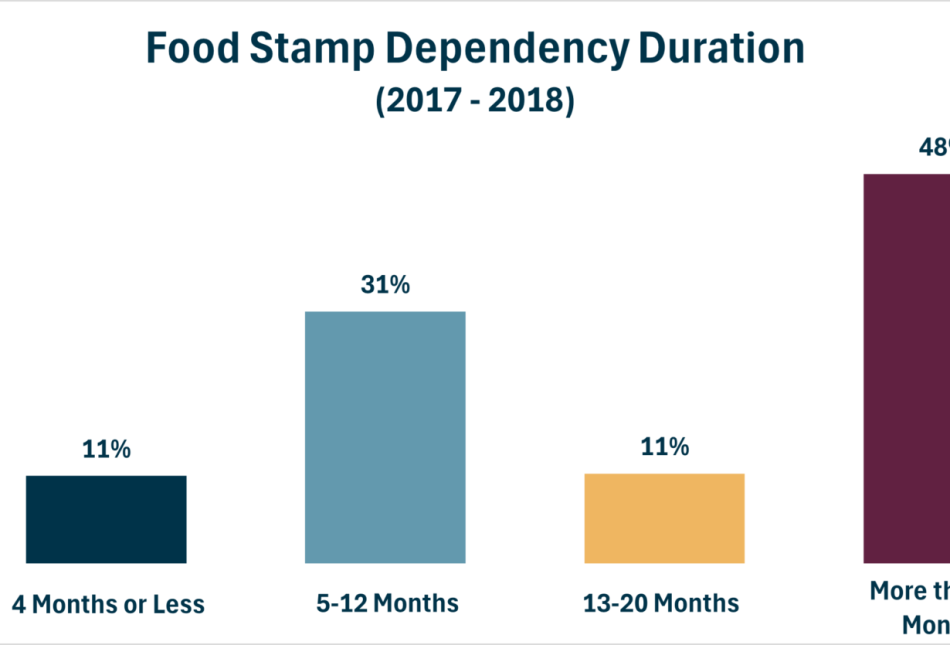Food stamp reform one step toward boosting workforce participation?

At Rio Grande Foundation we talk about New Mexico’s abysmal workforce participation rate regularly. The Legislative Finance Committee has also addressed the issue with some regularity and has touted increasing participation as helping reduce crime, increase economic growth and productivity and drive expanded tax revenues while lowering expenditures on supplemental income programs and other kinds of government assistance.
The problem is that reducing government benefits is tough. It’s certainly not the kind of policy Rep. Melanie Stansbury would support:
The new Farm Bill has problems–for our climate, our farmers, and our families.
New Mexico families will lose $340M in SNAP benefits if this version of the bill is passed.
Support families.
Support farmers.
Support climate resiliency.
Change this bill. https://t.co/mF6FpcVxSv— Rep. Melanie Stansbury (@Rep_Stansbury) May 23, 2024
But, as a new report from the Economic Policy Innovation Center notes, a majority of able-bodied food stamp (SNAP) recipients don’t work. 
Furthermore, just under half of all recipients remain on the program for more than 20 months.

It is one thing to go on food stamps if you cannot work or as a temporary stopgap between jobs. But most Americans and New Mexicans don’t want food stamps to be a way of life. Unfortunately, food stamps and other so-called anti-poverty programs seem to be preferable to work for many.
